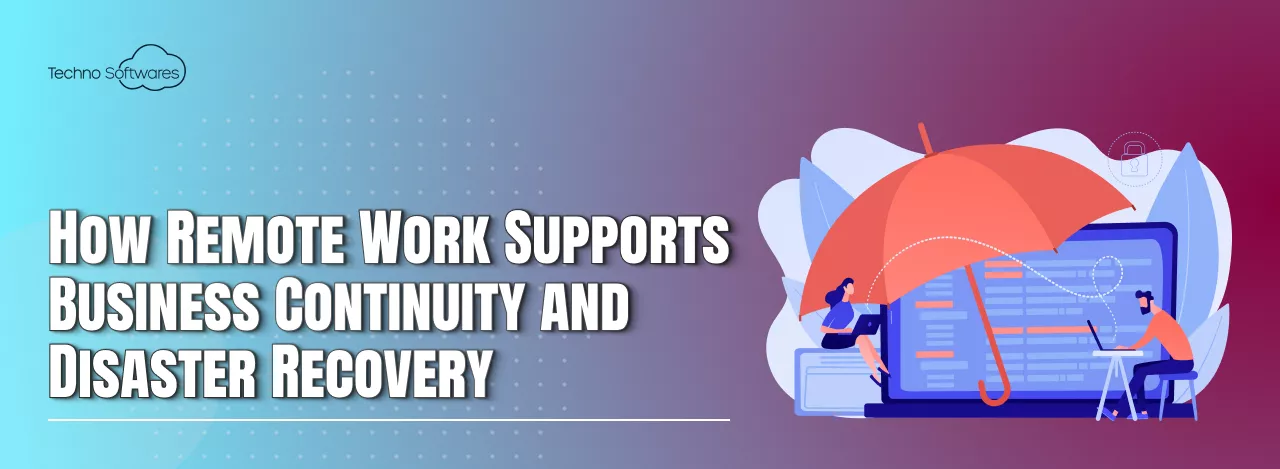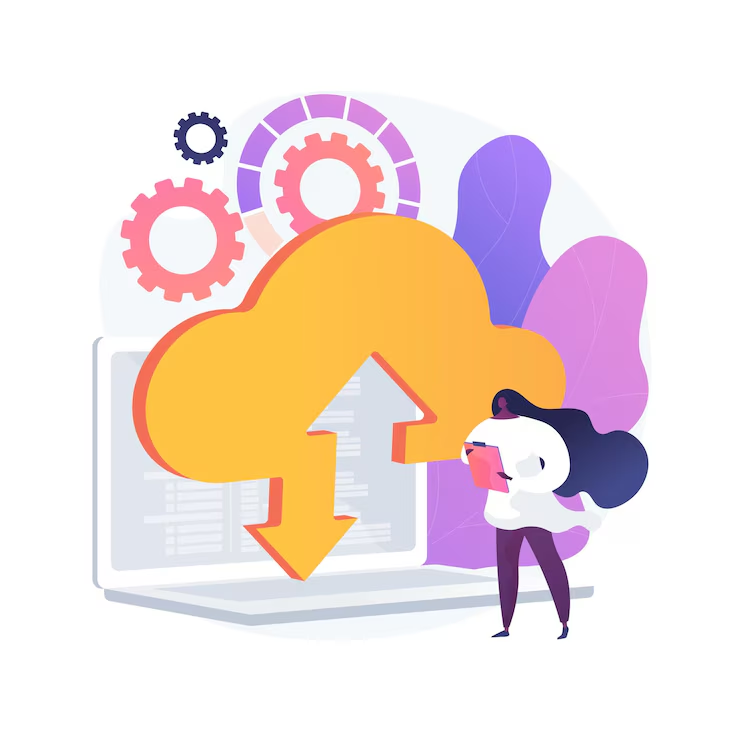The Impact of Remote Work on Business Continuity and Disaster Recovery
As we navigate the evolving landscape of the modern workplace, remote work has emerged as a significant trend that reshapes how we conduct business. The shift towards remote work has been accelerated by various factors, including technological advancements and global events that necessitate flexible working arrangements. This transformation has not only changed our daily routines but has also had profound implications for business continuity.
By allowing employees to work from anywhere, organizations can maintain operations even in the face of disruptions, ensuring that productivity remains intact. However, while remote work offers numerous advantages, it also presents unique challenges that we must address to ensure seamless business continuity. The reliance on digital communication tools and virtual collaboration platforms has become paramount, but it also raises questions about security, data integrity, and employee engagement.
As we embrace this new way of working, it is essential to understand the impact of remote work on our organizational resilience and the strategies we can implement to safeguard our operations.
Key Takeaways
- Remote work has become increasingly important for business continuity, especially in light of recent global events.
- Disaster recovery is crucial in remote work environments to ensure that operations can continue uninterrupted in the event of a crisis.
- Challenges and risks in remote work include cybersecurity threats, communication barriers, and potential disruptions to workflow.
- Techno Softwares play a key role in building reliable systems for remote work, including secure communication platforms and cloud-based storage solutions.
- Strategies for ensuring uninterrupted operations in remote work environments include regular backups, robust cybersecurity measures, and clear communication protocols.
The Importance of Disaster Recovery in Remote Work Environments
In a remote work environment, the importance of disaster recovery cannot be overstated. As we increasingly depend on technology to facilitate our daily tasks, the potential for disruptions—whether due to cyberattacks, natural disasters, or technical failures—becomes a pressing concern. A robust disaster recovery plan is essential for ensuring that we can quickly restore operations and minimize downtime in the event of an unforeseen incident.
This proactive approach not only protects our data but also reinforces our commitment to maintaining business continuity. Moreover, disaster recovery in remote work settings requires a tailored strategy that considers the unique challenges posed by a distributed workforce. We must ensure that all employees are equipped with the necessary tools and resources to respond effectively to emergencies, regardless of their location.
This includes establishing clear communication channels, providing training on emergency protocols, and regularly testing our recovery plans to identify potential weaknesses. By prioritizing disaster recovery, we can enhance our organizational resilience and ensure that we are prepared for any eventuality.
Challenges and Risks of Remote Work for Business Continuity and Disaster Recovery
While remote work offers flexibility and convenience, it also introduces a range of challenges and risks that can jeopardize business continuity and disaster recovery efforts. One of the most significant concerns is the increased vulnerability to cyber threats. With employees accessing sensitive information from various locations and devices, the risk of data breaches and security incidents escalates.
We must remain vigilant in implementing robust cybersecurity measures to protect our systems and data from potential attacks. Additionally, the lack of face-to-face interaction can lead to communication breakdowns and decreased collaboration among team members. In a remote setting, it can be challenging to maintain a cohesive company culture and ensure that everyone is aligned with organizational goals.
This disconnect can hinder our ability to respond effectively during crises, making it crucial for us to foster strong communication practices and encourage regular check-ins among team members. By addressing these challenges head-on, we can mitigate risks and enhance our overall business continuity strategy.
The Role of Techno Softwares in Building Reliable Systems for Remote Work
In our quest for effective remote work solutions, the role of technology cannot be underestimated. Techno software plays a pivotal role in building reliable systems that support our remote workforce. From project management tools to communication platforms, these technologies enable us to collaborate seamlessly and maintain productivity regardless of our physical locations.
By leveraging the right software solutions, we can create an environment that fosters innovation and efficiency. Moreover, investing in advanced techno software can significantly enhance our disaster recovery capabilities. Many modern tools come equipped with built-in backup features and data recovery options that allow us to safeguard critical information.
By integrating these technologies into our workflows, we can ensure that our operations remain uninterrupted even in the face of unexpected challenges. As we continue to embrace remote work, it is essential for us to stay informed about emerging technologies that can further enhance our systems and processes.
Strategies for Ensuring Uninterrupted Operations in Remote Work Environments
To ensure uninterrupted operations in remote work environments, we must adopt a multifaceted approach that encompasses various strategies. First and foremost, establishing clear guidelines and expectations for remote work is essential. By outlining roles, responsibilities, and performance metrics, we can create a structured framework that empowers employees to thrive in a virtual setting.
Regular check-ins and feedback sessions can further enhance accountability and keep everyone aligned with organizational objectives. Additionally, fostering a culture of collaboration is vital for maintaining productivity in remote teams. We should encourage open communication channels where team members feel comfortable sharing ideas and seeking assistance when needed.
Utilizing collaborative tools such as shared documents and virtual brainstorming sessions can facilitate teamwork and innovation. By prioritizing collaboration, we can create an environment where employees feel connected and engaged, ultimately contributing to uninterrupted operations.
Leveraging Technology for Seamless Business Continuity and Disaster Recovery
As we navigate the complexities of remote work, leveraging technology becomes paramount for achieving seamless business continuity and effective disaster recovery. Cloud-based solutions have revolutionized how we store and access data, allowing us to retrieve critical information from anywhere at any time. By adopting cloud services, we can enhance our data security while ensuring that our teams have access to the resources they need to perform their tasks efficiently.
Furthermore, automation tools can streamline various processes within our organization, reducing the risk of human error and enhancing overall efficiency. By automating routine tasks such as data backups and system updates, we can free up valuable time for our employees to focus on more strategic initiatives. Embracing technology not only strengthens our operational capabilities but also positions us as a forward-thinking organization ready to adapt to future challenges.
Best Practices for Implementing Remote Work Policies and Procedures
Implementing effective remote work policies and procedures is crucial for ensuring that our organization operates smoothly in a virtual environment. One best practice is to develop comprehensive guidelines that outline expectations for remote work arrangements. These guidelines should cover aspects such as communication protocols, performance metrics, and security measures to ensure that all employees are on the same page.
Additionally, providing ongoing training and support is essential for helping employees navigate the challenges of remote work. We should invest in resources that equip our teams with the skills they need to succeed in a virtual setting. Regular training sessions on cybersecurity best practices, effective communication techniques, and time management strategies can empower employees to excel in their roles while minimizing risks associated with remote work.
The Future of Remote Work and Business Continuity
As we look ahead to the future of remote work, it is clear that this trend is here to stay. The lessons learned during recent global events have underscored the importance of adaptability and resilience in maintaining business continuity. By embracing remote work as a viable option, we position ourselves to thrive in an ever-changing landscape while ensuring that our operations remain uninterrupted.
To succeed in this new era of work, we must continue to prioritize disaster recovery planning, invest in technology solutions, and foster a culture of collaboration within our teams. By implementing best practices for remote work policies and procedures, we can create an environment where employees feel supported and empowered to contribute their best efforts. Ultimately, the future of remote work holds immense potential for organizations willing to embrace change and innovate their approaches to business continuity.
In a related article on Techno Softwares’ blog, they discuss the importance of building reliable systems for uninterrupted operations. The article highlights the top 10 WooCommerce development companies in Malaysia, emphasizing the need for businesses to invest in robust e-commerce solutions to ensure business continuity. By following a step-by-step guide on the software development life cycle, companies can create efficient and resilient systems that can withstand disruptions, such as remote work challenges. To learn more about how Techno Softwares can help businesses with performance marketing strategies, visit <a href=’https://technosoftwares.com/blog/all-you-need-to-know-about-performance-marketing/’>here.
FAQs
What is the impact of remote work on business continuity and disaster recovery?
Remote work has a significant impact on business continuity and disaster recovery as it requires organizations to adapt their systems and processes to ensure uninterrupted operations, data security, and employee productivity.
How can Techno Softwares build reliable systems for uninterrupted operations?
Techno Softwares can build reliable systems for uninterrupted operations by implementing secure and scalable cloud-based solutions, leveraging virtual private networks (VPNs) for secure remote access, and integrating robust disaster recovery and backup solutions to ensure data protection and business continuity.







